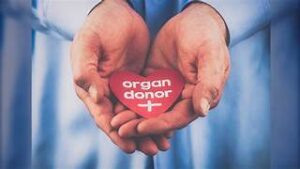Local News
“Nilakottai Teen’s Organ Donation Saves Lives: A Call for Awareness on Brain Death”
Teen Brain-Death in Nilakottai: A Family’s Grief Becomes Another’s Hope
In a tragic but ultimately hopeful turn of events, the organs of a 15-year-old boy from Nilakottai in Dindigul were donated after he was declared brain dead following a road accident. His decision and that of his family have given life to several others, illustrating the immense value and dignity in organ donation.
The Incident
On the night of September 10, 2025, the teenager—named R. Anandha Bodhi Kumara—suffered head injuries in a two-wheeler accident in Dindigul. He was first admitted to the Dindigul Government Medical College Hospital. As his condition worsened, he was referred to the Government Rajaji Hospital (GRH) in Madurai the next day for specialized care. Despite all medical efforts, doctors at GRH concluded in the early hours of September 13 that he was brain dead.
Organ Donation & Transplants
After the medical declaration of brain death, the teenager’s father, Rajendran, made the courageous decision to donate his son’s organs—an act that transforms grief into life. On that same day, several transplants were carried out:
-
The liver was transplanted to a patient at Kauvery Hospital in Trichy.
-
One kidney went to a patient also in Trichy, at Kauvery Hospital, Thennur.
-
The other kidney was allotted to a patient at Velammal Medical College Hospital in Madurai.
-
The cornea was retained and will be used at Government Rajaji Hospital.
Medical staff at GRH and Madurai Medical College, including Dean Dr. L. Arul Sundaresh Kumar, paid their respects to the deceased before the organs were harvested. The Dindigul administration also accorded state honours in recognition of the family’s decision.
Significance of Brain Death & Ethical Organ Donation
“Brain death” refers to irreversible cessation of brain activity. When correctly diagnosed, it’s medically equivalent to death even if other bodily functions continue for some time with life support. In many cases, the families of brain-dead patients may not fully understand the medical, legal, and ethical framework around it, leading to hesitation in donating organs.
In this case, the family’s decision stands as a powerful example. Organ donation after brain death is one of the few ways to save multiple lives. Just one donor can provide organs like kidneys, liver, corneas, and in some cases lungs or heart, depending on suitability.
Impact on Recipients & Community
Each organ donated meant a chance at life for multiple people. The liver transplant in Trichy will likely provide years of improved quality of life. The kidney transplants assure beneficiaries relief from kidney failure and dependence on regular dialysis. Corneal donation might help restore sight for someone blinded by injury or illness.
Beyond the beneficiaries, such donations also ripple into the community: they raise awareness, reduce stigma around organ donation, and set examples for other families facing similar tragedies.
Challenges & Need for Greater Awareness
While this story ends with hope, it also brings into focus several systemic challenges around organ donation in India, especially in smaller towns:
-
Awareness of brain death: Many people misunderstand or distrust the brain death diagnosis, thinking the patient is “still alive” because breathing or heartbeat might persist with life support.
-
Consent and decision-making: Families are often in shock and grief, making it difficult to make timely decisions about organ donation. Having prior conversations and legal documentation can help.
-
Infrastructure and coordination: Logistics for organ harvesting, storage, transplant readiness, and matching recipients require prompt and efficient healthcare systems.
-
Cultural and religious concerns: Myths and beliefs sometimes prevent families from consenting to donation; engaging community and faith leaders is important to address these.
Conclusion & Call to Action
The donation by the Bodhi Kumara family is a story of courage amidst sorrow. It is a reminder that in tragedy, there can also be generosity and hope. Their decision not only saved lives, but also exemplifies the importance of transparency, education, and solidarity in public health.
To make these stories more common, health authorities and non-profit organizations should focus on:
-
Educating public about what brain death really means
-
Encouraging people to sign donor cards or include wishes about organ donation in advance
-
Ensuring hospitals have protocols and trained teams to support organ donation processes
-
Recognizing and honoring donor families, which helps reduce societal taboos
Through collective effort, more lives can be transformed by organ donation. Even in grief, Bodhi Kumara’s legacy shines as one of giving.




